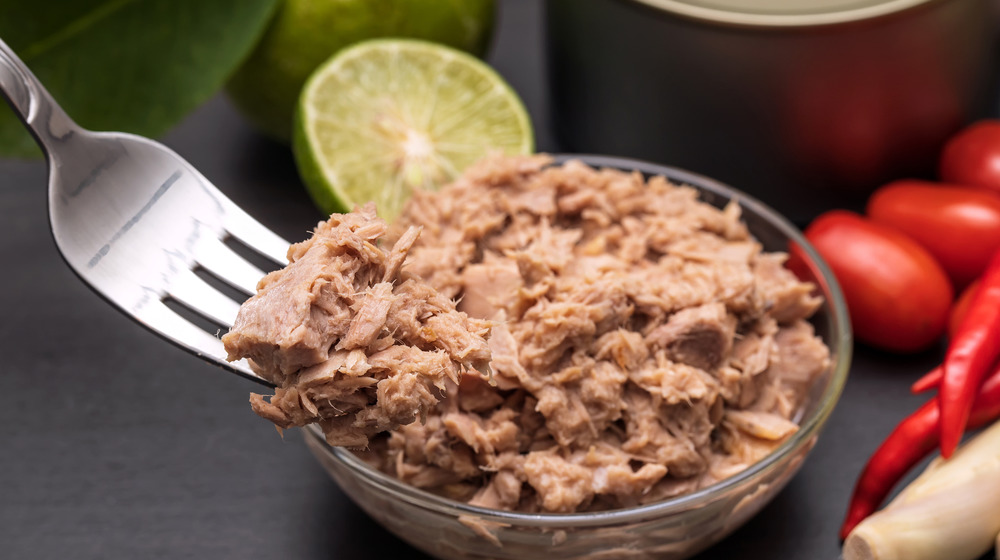What You Should Know Before Eating Canned Tuna
Unlike fresh tuna, canned tuna can be stored in your pantry, is low-cost, and a quick lunch option if you're in a pinch. It can be eaten alone or mixed with many other ingredients in a savory dish. Sure, this fish in a tin has been a popular pantry staple in many American households for decades, but there is more you should know.
First off, it's important to point out that there are some key health differences depending on whether the canned tuna has been packed in oil or water. Healthline states that tuna packed in oil has over double the amount of calories (56 calories vs. 24 calories), more than double the amount of fat (2 grams vs. less than 1 gram) and more sodium (118 mg vs. 79 mg). While tuna packed in oil doesn't win the prize for healthiest choice between the two, but both options are packed with protein (8 grams in tuna packed in oil and 6 grams for tuna in water) and both are considered to be nutritionally beneficial to your health.
Before we get back to raving about the health benefits of canned tuna, it's worth mentioning that you shouldn't overindulge. Women's Health states that certain species of tuna have a high amount of mercury. Eating too much of this toxic metal can lead to mercury poisoning and cause critical health issues. Pregnant women specifically, should be mindful of any fish with high levels of mercury.
The health benefits outweigh the potential risks
But don't let this stop you from recreating your favorite childhood tuna salad recipe. Dietitian Julie Upton, RD, cofounder of nutrition website Appetite for Health reassures us by explaining to Women's Health, "The health benefits of tuna generally outweigh the potential risks associated with trace levels of mercury detected in some tuna," she says.
In addition to being low in fat and high in protein, Healthline shares that tuna canned in both oil and in water are excellent sources of vitamin D, selenium, iodine, and omega-3 fatty acids. Dietitian and authorJessica Cording, RD, tells Women's Health, "Vitamin D and omega-3s are both essential nutrients for brain development and cognitive function, as well as reduction of inflammation."
One more thing to remember before you pop open a can of tuna. Like many other pantry staples, canned tuna could have been forgotten about and been sitting on your shelf (and the grocery store's shelf) for a long time! SF Gate recommends checking the expiration date on the can. And if it doesn't have one then give it one yourself by writing a date that is within 12 to 24 months after purchase. Also, avoid eating the tuna if the can has been damaged, rusted, or has started to bulge.


